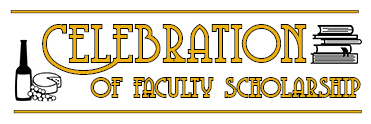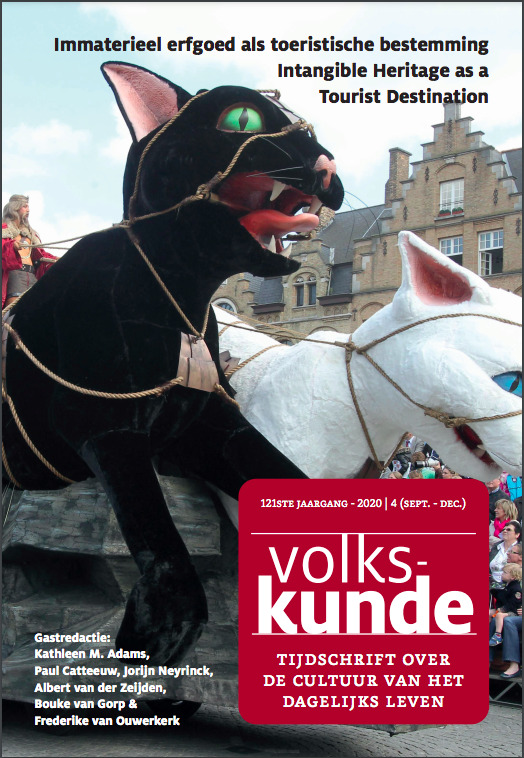Immaterieel erfgoed als toeristische bestemming / Intangible Heritage as a Tourist Destination
Item
Title
Immaterieel erfgoed als toeristische bestemming / Intangible Heritage as a Tourist Destination
Loyola Faculty Contributor
Kathleen M. Adams
Link
List of Authors
Kathleen M. Adams; Paul Catteeuw; Jorijn Neyrinck; Albert van der Zeijden; Bouke van Gorp; Frederike van Ouwerkerk
Abstract
Introduction
‘Iepen Mienskip’ (Open Community) was the proud slogan of the Dutch Cultural Capital of Europe of 2018, Leeuwarden-Friesland (LF2018). The rallying cry, expressed in the traditional Frisian language, translates into a sense of openness and community. This concept originates in the ancient fight against rising waters, which is characteristic of Friesland. Most of the countryside is below sea level and has battled floods for centuries through collaboration and caring for one another. Nowadays, the open community mainly manifests itself in a sense of connection and taking care of each other as a neighbourhood or village. As such, it has been registered by the Dutch Centre for Intangible Cultural Heritage (DICH). This initiative, among others, collects and preserves intangible cultural heritage, or intangible heritage, such as cultural events, traditions, and customs strongly linked to local communities. The main goal of the DICH is to ”promote intangible cultural heritage and to make it accessible … and encourage people to participate in it.”
In recent decades, tourism has become an impactful tool to support the dynamic of intangible heritage and ensure its economic survival. Tourism, however, increasingly apparent in Friesland since LF2018, also poses a possible threat to the survival of intangible heritage communities.5 On a global scale, tourism has already proven to be possibly harmful to a place or community’s ecological and authentic well-being.6 Consequently, sustainable safeguarding has become a highly relevant topic for intangible heritage communities susceptible to tourism to ensure their physical and cultural well-being. Another important aspect of heritage is its relation to human rights and democracy. According to the Faro Convention heritage ”promotes a wider understanding of heritage and its relationship to communities and society […] objects and places are not, in themselves, what is important about cultural heritage. They are important because of the meanings and uses that people attach to them and the values they represent.”
Despite the smaller scale and less pressing state of tourism in Friesland, the discussion about how to achieve the sustainable safeguarding of intangible heritage communities is extremely present. Another factor in this may be its ranking third in ‘Europe’s Best’ by renowned travel guide Lonely Planet, which, together with LF2018, stimulated the debate around the sustainable safeguarding of intangible heritage communities in the Northern Netherlands.
This article aims to further develop the debate around the sustainable safeguarding of intangible cultural heritage communities in Friesland and contribute to larger debates surrounding sustainable tourism and intangible heritage preservation worldwide. These aims will be achieved by exploring the current state of affairs, attitudes, and concerns around the topic of sustainable tourism in intangible heritage communities in Friesland. Theories such as Butler’s Tourist Area Life Cycle10 and Pine and Gilmore’s so-called ‘Experience Economy’ will be utilised. Additionally, this article will explore opportunities to add additional, sustainable value to intangible heritage communities and create entrepreneurial opportunity. This article will explore the following research question:
What are the opportunities and challenges facing intangible cultural heritage communities in Friesland concerning managing sustainable safeguarding and cultural tourism simultaneously?
By using qualitative research, interviewing Frisian intangible heritage communities, and applying relevant theories, this article will contribute to the answer of this question, and practical recommendations for intangible heritage communities will be presented. The relevance of this article lies mainly in exploring strategies to combine tourism and heritage preservation sustainably. Since the tourism industry has grown exponentially in recent decades, defining ways to manage this event in sustainable ways that safeguard both the environment and the essential value of heritage communities are crucial. These communities, in turn, form a vital component of cultural and societal well-being. As such, it is also included in the eleventh Sustainable Development Goal, Target 11.4, that aims to ”strengthen efforts to protect and safeguard the world’s cultural and natural heritage.” Additionally, the article addresses a variety of other disciplines such as sociology and folklore, making the overall research interdisciplinary and open for further interpretation and discussion. This article draws on developing research in the field of intangible cultural heritage protection and tourism by UNESCO, defined as ”sustainable safeguarding.” In the Netherlands, this topic has been put on the cultural agenda by the DICH. This article is part of their investment in local research into sustainable safeguarding for intangible cultural heritage. The Frisian case discussed in this article supports both the European and national goals to explore safeguarding opportunities.
The outline of this article is as follows: first, the theoretical background and concepts mentioned in this introduction will be laid out and interrelated. Subsequently, in the methods section, the research structure, circumstances, and ethics of the research will be presented, followed by the results. In the discussion, the conclusions of the most outstanding findings will be presented, illustrating the most striking challenges and opportunities for intangible cultural heritage communities in Friesland. Recommendations, limitations, and finally, directions for further research will conclude this article.
‘Iepen Mienskip’ (Open Community) was the proud slogan of the Dutch Cultural Capital of Europe of 2018, Leeuwarden-Friesland (LF2018). The rallying cry, expressed in the traditional Frisian language, translates into a sense of openness and community. This concept originates in the ancient fight against rising waters, which is characteristic of Friesland. Most of the countryside is below sea level and has battled floods for centuries through collaboration and caring for one another. Nowadays, the open community mainly manifests itself in a sense of connection and taking care of each other as a neighbourhood or village. As such, it has been registered by the Dutch Centre for Intangible Cultural Heritage (DICH). This initiative, among others, collects and preserves intangible cultural heritage, or intangible heritage, such as cultural events, traditions, and customs strongly linked to local communities. The main goal of the DICH is to ”promote intangible cultural heritage and to make it accessible … and encourage people to participate in it.”
In recent decades, tourism has become an impactful tool to support the dynamic of intangible heritage and ensure its economic survival. Tourism, however, increasingly apparent in Friesland since LF2018, also poses a possible threat to the survival of intangible heritage communities.5 On a global scale, tourism has already proven to be possibly harmful to a place or community’s ecological and authentic well-being.6 Consequently, sustainable safeguarding has become a highly relevant topic for intangible heritage communities susceptible to tourism to ensure their physical and cultural well-being. Another important aspect of heritage is its relation to human rights and democracy. According to the Faro Convention heritage ”promotes a wider understanding of heritage and its relationship to communities and society […] objects and places are not, in themselves, what is important about cultural heritage. They are important because of the meanings and uses that people attach to them and the values they represent.”
Despite the smaller scale and less pressing state of tourism in Friesland, the discussion about how to achieve the sustainable safeguarding of intangible heritage communities is extremely present. Another factor in this may be its ranking third in ‘Europe’s Best’ by renowned travel guide Lonely Planet, which, together with LF2018, stimulated the debate around the sustainable safeguarding of intangible heritage communities in the Northern Netherlands.
This article aims to further develop the debate around the sustainable safeguarding of intangible cultural heritage communities in Friesland and contribute to larger debates surrounding sustainable tourism and intangible heritage preservation worldwide. These aims will be achieved by exploring the current state of affairs, attitudes, and concerns around the topic of sustainable tourism in intangible heritage communities in Friesland. Theories such as Butler’s Tourist Area Life Cycle10 and Pine and Gilmore’s so-called ‘Experience Economy’ will be utilised. Additionally, this article will explore opportunities to add additional, sustainable value to intangible heritage communities and create entrepreneurial opportunity. This article will explore the following research question:
What are the opportunities and challenges facing intangible cultural heritage communities in Friesland concerning managing sustainable safeguarding and cultural tourism simultaneously?
By using qualitative research, interviewing Frisian intangible heritage communities, and applying relevant theories, this article will contribute to the answer of this question, and practical recommendations for intangible heritage communities will be presented. The relevance of this article lies mainly in exploring strategies to combine tourism and heritage preservation sustainably. Since the tourism industry has grown exponentially in recent decades, defining ways to manage this event in sustainable ways that safeguard both the environment and the essential value of heritage communities are crucial. These communities, in turn, form a vital component of cultural and societal well-being. As such, it is also included in the eleventh Sustainable Development Goal, Target 11.4, that aims to ”strengthen efforts to protect and safeguard the world’s cultural and natural heritage.” Additionally, the article addresses a variety of other disciplines such as sociology and folklore, making the overall research interdisciplinary and open for further interpretation and discussion. This article draws on developing research in the field of intangible cultural heritage protection and tourism by UNESCO, defined as ”sustainable safeguarding.” In the Netherlands, this topic has been put on the cultural agenda by the DICH. This article is part of their investment in local research into sustainable safeguarding for intangible cultural heritage. The Frisian case discussed in this article supports both the European and national goals to explore safeguarding opportunities.
The outline of this article is as follows: first, the theoretical background and concepts mentioned in this introduction will be laid out and interrelated. Subsequently, in the methods section, the research structure, circumstances, and ethics of the research will be presented, followed by the results. In the discussion, the conclusions of the most outstanding findings will be presented, illustrating the most striking challenges and opportunities for intangible cultural heritage communities in Friesland. Recommendations, limitations, and finally, directions for further research will conclude this article.
Date
31-Dec-20
Publication Title
Volkskunde
Bibliographic Citation
2020 Immaterieel erfgoed als toeristische bestemming / Intangible Heritage as a Tourist Destination, Guest co-edited theme issue of Volkskunde (guest coedited with P. Catteeuw, et al. & co-authored introduction). Vol 121(4).

